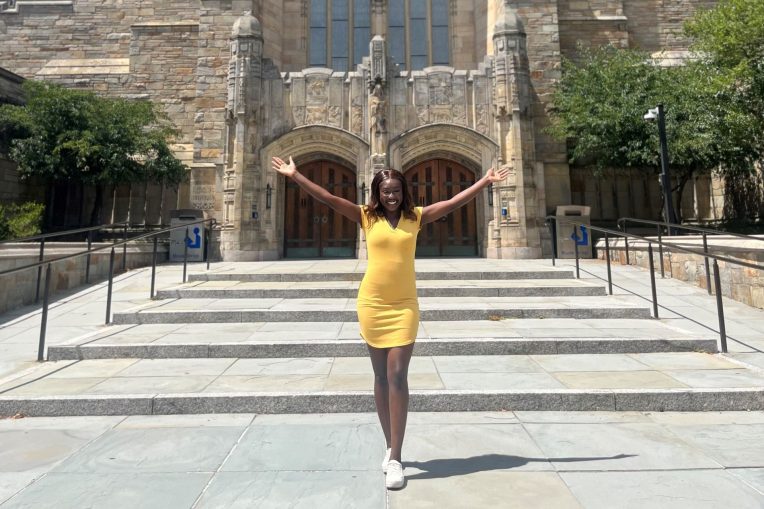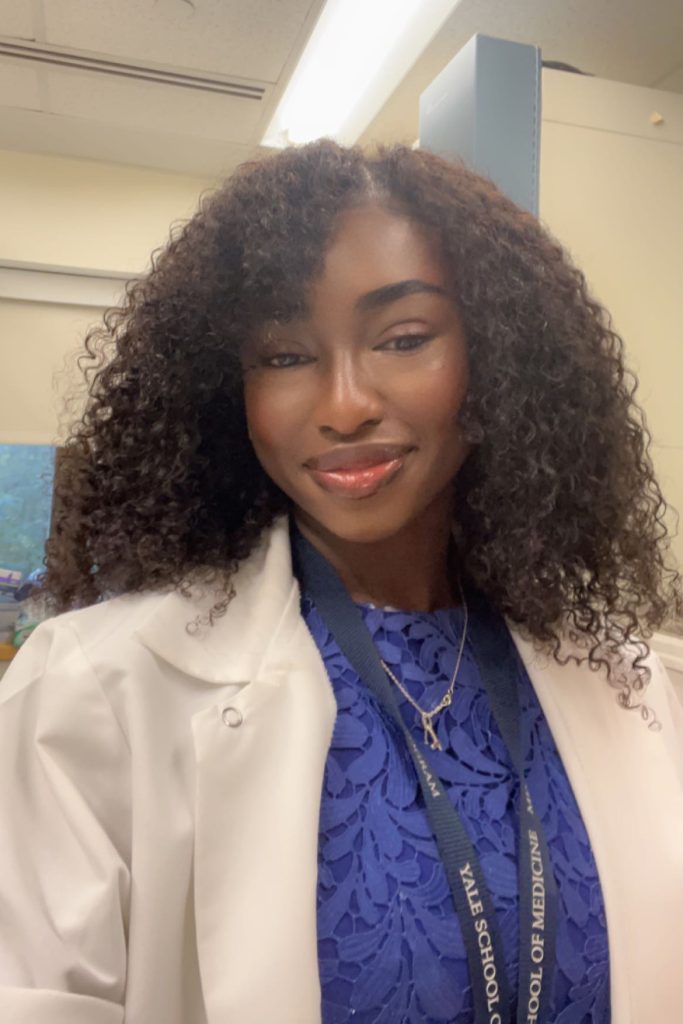It’s not every day that the opportunity arises to research cancer cells at Yale University, but for Illinois State University junior Erinda Aidoo, it was an everyday activity this summer.
Aidoo, a molecular and cellular biology major, applied for a Research Experience for Undergraduates (REU) program at Yale, and when she was accepted last spring, she said, “I was excited. Honestly, I didn’t think I would get it. I was just applying to apply. I was very surprised while still very excited for the prospect of meeting new people and researching.”
Appears InThe program took place over 10 weeks at Yale University in New Haven, Connecticut. Aidoo’s research cohort consisted of 27 students from across the U.S. and the world. In addition to conducting research, Aidoo shadowed in a hospital, engaged in career development programs, and attended panels consisting of Yale professors, researchers, and deans. Aidoo was mentored by a Ph.D. student in a lab focused on how melanoma and lung cancer respond to drugs.
“I loved getting to see cancer cells,” said Aidoo. “I’ve never worked with cells before; doing cell cultures, learning how cells look, how they work, what people do to cells, and how you use them for research. It was a great experience.”
Aidoo said a newer treatment for lung cancer—the leading cause of cancer death worldwide—is immunotherapy, a type of biological therapy that utilizes the body’s own immune system to fight cancer cells. However, this form of treatment is not always effective due to a lack of antigen presentation—foreign substances that induce an immune response. If there is a lack of antigens, then the immune system does not induce a response which leaves immunotherapy ineffective.
“My part of the project was analyzing the capacity for the lung cancer cells to process and present specific tumor antigens,” said Aidoo.
In her research, Aidoo used flow cytometry, a type of test used on blood cells to measure and detect cells’ physical or chemical characteristics. Aidoo concluded that she could successfully use flow cytometry to analyze the cells for antigen presentation. Her research mentor plans to carry out the research for his Ph.D. dissertation.
At Illinois State, Aidoo works in a research lab led by Dr. Andres Vidal-Gadea, associate professor of molecular neuroethology.
“Erinda is a very driven, intelligent student who seeks out these opportunities and excels at them,” said Vidal-Gadea. “She faces these difficult challenges, experiments, and techniques while putting in the time and effort. But at the same time, she’s also showing other people a path of how to make the most of their time here.”
In Vidal-Gadea’s lab, Aidoo studies the effectiveness of steroids to treat muscular dystrophy, a disease that affects the muscles through a person’s genes. Aidoo is currently researching two steroids through experimentation with microscopic nematode C. elegans worms. She uses a technique called RNA interference (RNAi) to test positive and negative controls by knocking out certain genes and testing the effectiveness of the steroids.
“Dr. Vidal-Gadea has taught me how to be resilient and not be scared of not knowing things, especially if it pertains to research,” said Aidoo. “[His lab] taught me not to be afraid of saying ‘I don’t know’ or asking questions.”
Based on her experience at Yale and in Vidal-Gadea’s lab, Aidoo is working toward becoming a physician-scientist.
“I came to ISU focused on being a doctor. And then I started doing research and realized I really like it—I didn’t know there was a field where you can be a research scientist and a doctor,” Aidoo said. “Now, I think I’ve found my niche. This is what I want to do.”


